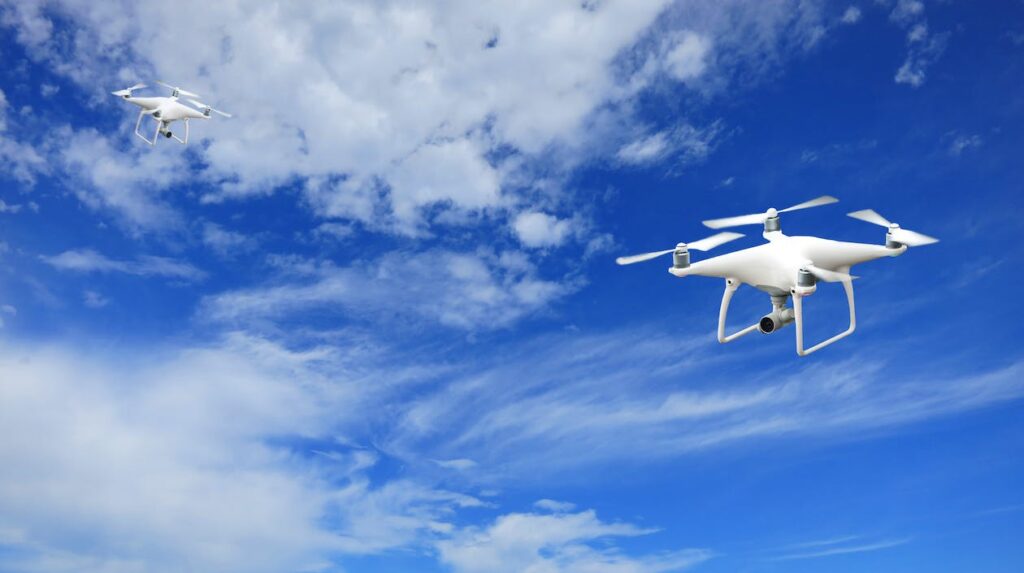Emerging trends
How Drones Are Revolutionising Air Cargo Charter and Emergency Services

Unmanned Aerial Vehicles (UAVs), commonly known as drones, are pilotless aircraft that operate without crew or passengers on board. These innovative machines come in two primary types: automated systems and remotely piloted vehicles (RPVs). While drone technology traces its origins back to World War I, today’s advanced UAVs are transforming emergency services, air cargo charter operations, and supply chain logistics across multiple industries.
The Growing Impact of Drone Technology
Modern drones serve as essential tools driving innovation across numerous sectors. From healthcare delivery to air cargo charter services, these versatile aircraft are reshaping how businesses operate and deliver critical services.
Drones Saving Lives in Healthcare
Emergency Medical Delivery Drones excel at delivering life-saving medical supplies, including blood products and antivenom serums, to patients requiring urgent care. Project Bloodwing demonstrates this capability by using temperature-controlled UAVs to transport donated blood to remote areas in South Africa, ensuring critical supplies reach those in need.
A remarkable example occurred in Sweden, where a drone delivered a defibrillator to a heart attack victim within minutes, potentially saving his life. This showcases the incredible speed and efficiency that drone technology brings to emergency medical response.
Remote Healthcare Access Healthcare drones provide efficient medical services to remote locations where traditional aircraft cannot safely operate. These UAVs eliminate the risk to human pilots while significantly reducing response times for emergency medical situations.
Weather Monitoring and Disaster Response
Advanced drones can navigate through hazardous atmospheric conditions to collect critical weather data. The National Oceanic and Atmospheric Administration (NOAA) currently tests Altius-600 drones for hurricane tracking missions. These weather-monitoring UAVs provide more accurate storm predictions and enable faster evacuation warnings, potentially saving countless lives.
Enhanced Surveillance and Security Operations
Industrial and Agricultural Applications Drones offer rapid, cost-effective surveillance solutions for various organizations and locations. In construction, they inspect structural integrity quickly and safely. Agricultural operations use UAVs to monitor crop health more efficiently than traditional methods.
Aviation Security Within the aviation sector, drones provide additional security monitoring for airport operations. São Paulo International Airport in Brazil employs UAVs for fire detection and perimeter security, demonstrating their effectiveness in critical infrastructure protection.
Search and Rescue Operations Mountain rescue teams in national parks and forests leverage drone technology for search and rescue missions. Statistics show that drones have already contributed to saving over 880 people worldwide, with popular models like the DJI drone series leading these lifesaving operations.
Transforming Airport Management
Wildlife Control Airport authorities deploy specialized RoBird drones to manage bird populations around runways, significantly reducing the risk of bird strikes that could endanger aircraft operations.
Infrastructure Inspection Canard drones excel at inspecting Navigation Aids (NAVAIDs) around airports, including Precision Approach Path Indicator (PAPI) lights, ensuring critical aviation infrastructure remains operational.
Weather Management Pyper Vision represents an innovative drone development currently being tested at New Zealand airports. These UAVs can disperse fog around airports, potentially reducing weather-related flight delays.
The Future of Air Cargo Charter with Drones
Sustainable Aviation Solutions Drones are revolutionizing the air cargo charter industry by offering environmentally sustainable alternatives to traditional aircraft. These innovative vehicles help air charter companies reduce operational costs while significantly decreasing their environmental impact.
Environmental Benefits Next-generation cargo drones can reduce emissions by up to 80% compared to conventional aircraft, as many models run entirely on synthetic fuel. This makes them ideal for air cargo charter operations focused on sustainability.
Enhanced Payload Capacity Companies like Dronamics are developing advanced cargo drones with larger, more efficient payloads, positioning drone technology to handle increasingly complex air cargo charter requirements.
Partner with CharterSync for Your Aviation Needs
Ready to explore how drone technology and air cargo charter solutions can benefit your operations? CharterSync’s experienced sales and operations team provides 24/7 support to help you navigate the evolving aviation landscape. Contact us today to discover how we can optimise your air charter requirements with cutting-edge solutions.
Stay Informed
Latest from the blog
Sep 26, 2025
The Future of Air Cargo Charter: How Electric and Hybrid Aviation Will Transform Airfreight Services
Read more
Sep 24, 2025
CharterSync Founder Ed Gillett on AI-Powered Air Cargo Charter Booking Innovation at Air Cargo Europe 2025
Read more
Sep 22, 2025
CharterSync Secures Strategic Investment to Accelerate AI-Powered Air Cargo Charter Innovation
Read more

NEWSLETTER

